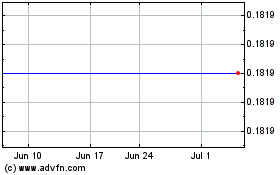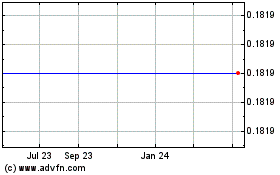By Paul Page Sign up:With one click, get this newsletter delivered to your inbox.
Department stores are trying to put supply-chain lessons from
the fast-fashion world to work. Retailers including Lord &
Taylor, J.C. Penney Co. and Hudson's Bay Co. are trying to
streamline production and move goods faster and with more
flexibility, the WSJ's Suzanne Kapner reports, mimicking the nimble
operations of Inditex SA's Zara and Hennes & Mauritz AB's
H&M that have roiled the retail apparel world. Changing the
supply chain is a matter of survival for the big stores since
shifting shopping habits have sent their sales tumbling. It's also
a tricky proposition because it means changing the most fundamental
parts of their business. The stores are pulling away from
entrenched wholesalers, distribution channels and sales strategies
built up over years and moving instead to new suppliers and
supply-chain designers aligned with fast-fashion methods. One key,
says New York-based Xcel Brands Inc., which sells fast-fashion
tricks to traditional brick-and-mortar retailers, is to start work
at the factories knowing that operations will change as consumers
weigh in with their choices.
Global shipping lines are under new scrutiny over price-fixing.
South Africa's Competition Commission is investigating some of the
world's biggest container shipping operators, the WSJ's Costas
Paris reports, and using information from raids on the carriers'
local offices. The operators targeted are the South African units
of Germany's Hamburg Sud, Denmark's Maersk Line, Geneva-based
Mediterranean Shipping Company, France's CMA CGM Shipping and
Safmarine, a Maersk subsidiary. The problem follows the conclusion
in July of a three-year probe by the European Commission on the
pricing of 14 container liners. In that case, regulators imposed no
penalties after the carriers promised to make freight rate setting
practices more transparent. South Africa, which sits at a key
crossroads for international transport, hasn't been as lenient in
the past. The South African regulator last July fined Japan's
Nippon Yusen Kabushiki Kaisha $8.5 million for colluding with
competitors in shipping vehicles.
That delivery you're expecting by drone might be late. Despite
escalating industry pressure for approval of package-delivery
drones and high-profile tests of the operations, the WSJ's Andy
Pasztor reports that safety experts and federal documents indicate
widespread flights aren't likely before the next decade. U.S.
aviation authorities only recently kicked off the formal,
time-consuming process of defining the types of collision-avoidance
systems essential for such operations to receive broad regulatory
approval. Drafting the technical standards is projected to take
three or four years, envisioning a suite of ground-based and
airborne sensors that haven't been developed. Impatient private
companies are persistently prodding regulators -- and some are
lobbying extensively on Capitol Hill -- to move more quickly to
open up the skies for delivery drones. Until that happens, tests
like one that United Parcel Service Inc. recently disclosed will
get plenty of attention, but won't presage a commercial operation
anytime soon.
SUPPLY CHAIN STRATEGIES
This is a bad time to be a British importer. While exporters
have benefited from the decline of the pound since Britons voted to
leave the European Union, the WSJ's Simon Zekaria reports
production costs for companies that depend on materials from abroad
are soaring and that's starting to hit the broader economy. The
spreading impact highlights the big role trade plays in the U.K.,
and how the movement of currency values outside their normal ranges
can change the fundamentals for some businesses. U.K. companies'
fuels and materials costs rose 7.6% in August from a year earlier,
according to the Office for National Statistics, and companies are
starting to raise their prices to consumers. Small and mid-size
companies are particularly hard-hit because they have fewer
protections against currency swings, but large companies also are
coming closer to making big decisions about their investments.
Nissan Motor Co. says it may scrap a major investment in the U.K.
without more clarity on post-Brexit trade relations and wants
compensation from the government if there are new tariffs.
QUOTABLE
IN OTHER NEWS
The U.S. economy grew at a 1.4% rate in the second quarter,
faster than earlier estimated, thanks to improved business
investment. (WSJ)
Vietnam's economic growth accelerated to 6.4% in the third
quarter. (WSJ)
The union representing United Continental Holdings Inc.
mechanics will put a new tentative labor contract to a member vote
in the coming weeks. (WSJ)
Deutsche Lufthansa AG will take over Brussels Airlines.
(WSJ)
Nike Inc. plans to expand direct-to-consumer sales to $16
billion, a third of its revenue, while lessening its dependence on
wholesalers. (WSJ)
Costco Wholesale Corp. reported a surprise increase in quarterly
earnings despite cheap fuel and higher wages. (WSJ)
Auto makers are speeding up their development of electric
vehicles to compete with Tesla Motors Inc. (WSJ)
Several countries called for the International Maritime
Organization at its October meeting to adopt a detailed plan to
reduce carbon emissions in shipping. (Shipping Watch)
Electronics maker Sharp Corp. plans to spin off its logistics
operations into a separate company as it focuses on lean
manufacturing. (Nikkei Asian Review)
The U.S. House overwhelmingly passed a bill authorizing spending
on dozens of water-related projects around the country. (The
Hill)
Holders of Rickmers Maritime bonds are fighting the troubled
shipping line's bid to make reduced payments, demanding instead to
get their full principal returned. (Straits Times)
Warehouse workers for British online fashion seller Asos are put
through intrusive and highly stressful working conditions,
according to a Buzzfeed investigation. (Buzzfeed)
Rolls-Royce Holdings PLC suspended its marine engine
manufacturing operation in Shanghai amid depressed shipbuilding
demand. (Splash 24/7)
Texas-based Vroom.com secured $50 million in new funding to back
expansion of its online car retailing business. (Internet
Retailer)
Damco, the forwarding unit of A.P. Moller-Maersk A/S, named
Klaus Rud Sejling chief executive after the resignation of Hanne
Sorensen. (The Loadstar)
Maersk Line ordered 14,000 refrigerated containers, adding to
strong growth in temperature-controlled equipment in shipping this
year. (Lloyd's Loading List)
Apparel retailer Tory Burch will build a distribution center
outside Atlanta for e-commerce fulfillment. (Atlanta
Journal-Constitution)
The Girl Scouts of America introduced a "Women in Trucking"
badge. (DC Velocity)
ABOUT US
Paul Page is deputy editor of WSJ Logistics Report. Follow him
at @PaulPage, and follow the entire WSJ Logistics Report team:
@brianjbaskin, @lorettachao, @RWhelanWSJ and @EEPhillips_WSJ, and
follow the WSJ Logistics Report on Twitter at @WSJLogistics.
Subscribe to this email newsletter by clicking here:
http://on.wsj.com/Logisticsnewsletter .
Write to Paul Page at paul.page@wsj.com
(END) Dow Jones Newswires
September 30, 2016 07:00 ET (11:00 GMT)
Copyright (c) 2016 Dow Jones & Company, Inc.
J C Penney (NYSE:JCP)
Historical Stock Chart
From Mar 2024 to Apr 2024

J C Penney (NYSE:JCP)
Historical Stock Chart
From Apr 2023 to Apr 2024
